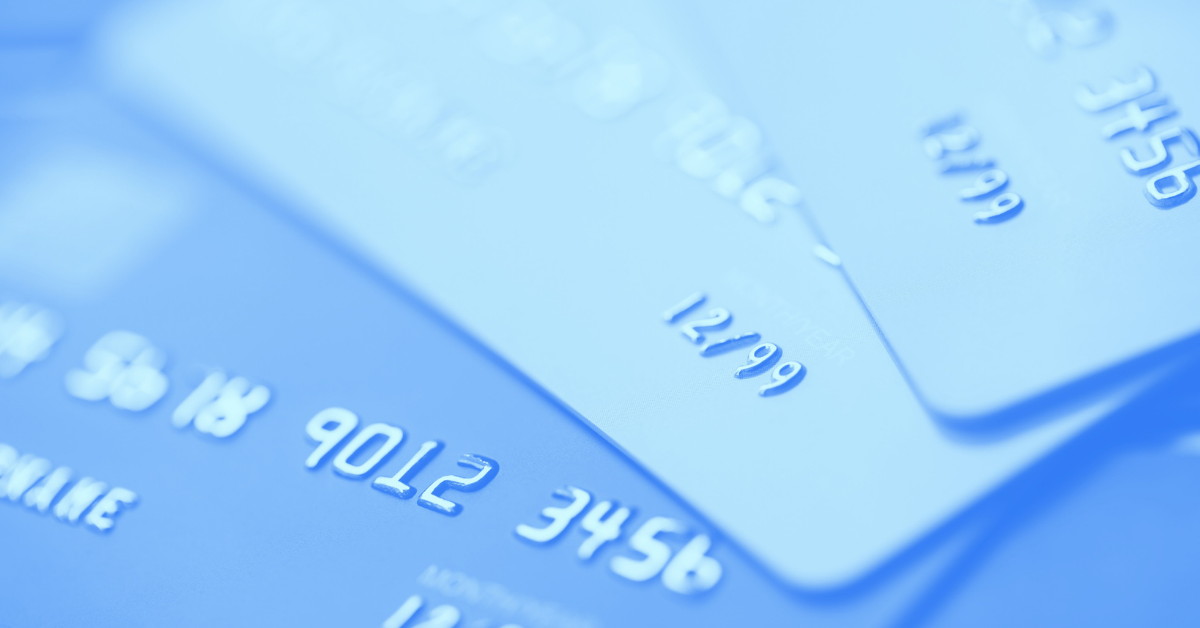These Related Stories
How to Use Credit Cards the Smart Way
Share this

“Debt” is probably the worst four-letter word in personal finance, and far too many people have it hanging over their heads.
Collectively, Americans hold $11.68 trillion dollars in debt. $854.2 billion of that comes from credit cards. It’s no wonder that for many of us, the thought of credit cards and debt go hand in hand.
But it doesn’t have to be this way. Using credit cards won’t automatically put you into debt and credit cards aren’t inherently “bad” for your finances. They can lead to trouble, so do your due diligence.
[Tweet "Credit cards can cause trouble, but you CAN use them wisely. Here's how"]
Arm yourself with the right knowledge before swiping your card. Understanding what it means to be financially responsible will allow you to leverage your credit cards and use them as tools (instead of allowing them to use you). Here are some tips to set you on the right path:
How to Use Credit Cards 101
Before you even think about applying for a card if you don’t have one yet, understand the basics of how credit cards work, how interest is charged, and what you need to do to stay out of consumer debt:
- Credit is not the same as cash. Every time you charge your card, you’re paying for your purchase with someone else’s money that you’ve borrowed -- just like a loan.
- If you don’t repay your “loan,” you’ll be charged a fee for borrowing that money. That’s the interest on your card.
- Failing to make payments results not only in late fees and penalties, but also means you’re carrying a balance on your card. You’re charged interest on your balance, and that interest compounds every month you carry the balance.
A good rule of thumb for using credit cards and not racking up consumer debt? You should not charge a purchase if you don't have the cash on hand to pay your credit card bill.
Choosing a Credit Card
If you feel you’re financially responsible enough to handle and manage a credit card, you may be wondering which card to choose. There are countless credit cards available and many of them have a simple, easy, application process.
There’s a reason for this: credit card companies want you to sign up for lots and lots of cards. They bank on the probability that at some point, some time, you will slip up and create a situation where they can A. charge you a fee or B. charge you interest. Again, ensure you understand credit cards and how they function before applying for one.
When it comes to choosing a card, select one that provides a benefit to you for using it. Most cards these days are rewards cards.
While it’s tempting to grab a travel rewards card, resist. Most people don’t do nearly enough normal monthly spending to earn points for free flights or hotel stays on a regular basis.
Instead, choose a card that offers cash-back rewards. It’s a simple way to get cash back in your hand that you can then use to boost your savings.
Don’t Forget the Details
Be sure to carefully look over the stipulations of any card you’re interested in getting. Read the fine print, because late payments and interest aren’t the only ways credit card companies can charge you.
Many cards come with annual fees. Even if the fee is waived for the first year, it’s not usually worth it to apply for a card that you have to pay to use. Most people are better off choosing a card without a fee, even if it means less in rewards.
Another catch: balance transfers. Even if your card offers something like 0% interest for twelve months, interest will be charged on balance transfers between most cards immediately. Credit card companies do this to stop people from moving balances around from card to card while trying to avoid paying interest.
Finally, understand the cash advances are not the same as regular purchases that you may charge to your card. Your credit card company may encourage you to take out cash advances by sending checks in the mail that are tied to your credit card -- but the interest on a cash advance is applied immediately (and with some cards, compounds daily).
Understanding the Ins and Outs of Your Credit Score
Again, credit cards can be useful when they’re used as tools to better our financial standing. Regularly using a credit card the right way can help you build your credit score -- and a good credit score helps you secure things like car loans and mortgages (with lower interest rates).
If you want to use a credit card to “build” credit and better your score, start by understanding how the credit bureaus determine that score:
- Your payment history: your history of paying off your loans and lines of credit on time and in full.
- The amount of money you owe: your debt-to-credit ratio matters when it comes to your credit score. This metric compares the amount of available credit you have and the amount of money you owe. The less credit you use every month -- even if you have lots available -- the better your ratio, and therefore, the better your score.
- Your credit history age: the older your credit history, the better your score. This is why you're told not to close old accounts.
- New credit to your name: if you've opened a lot of new accounts, this raises a red flag. Open accounts over periods of time, not all at once!
- The mix of credit sources you're using: you want to prove you can handle all types of credit -- but don't use that as an excuse to take out loans you don't need. This is a very small factor in determining your score. If you're only using a credit card, that's okay.
What to Know When You Want to Close an Account
As mentioned above, you need to be careful when you choose to close a credit card account. But that doesn't mean you can't ever do so, and depending on your situation, it may be the smartest move.
Closed credit cards will hang around your credit report for seven years, but the older the information the less of an impact it has on your current score. This is good news for those with cards that have "negative" data associated with them: over time, the account hurts your score less.
However, there's a flip side to this. Closing a card with "positive" data can actually cause your score to drop -- and continue dropping -- over time.
People who are too tempted to rack up balances they can't pay off should consider closing their credit card accounts. Any tendency to misuse credit cards is far more disastrous to your financial well-being than a closed account on your credit report. If you struggle with responsible credit card use, consider shutting down all your cards except your oldest one.
Do you use credit cards as helpful financial tools, or do you have difficulty controlling your spending when you use plastic? What other questions do you have about credit cards?
Share this
- Good Financial Reads (923)
- Financial Education & Resources (892)
- Lifestyle, Family, & Personal Finance (865)
- Market Trends (114)
- Investment Management (109)
- Bookkeeping (55)
- Employee Engagement (32)
- Business Development (31)
- Entrepreneurship (29)
- Financial Advisors (29)
- Client Services (17)
- Journey Makers (17)
- Fee-only advisor (12)
- Technology (8)
Subscribe by email
You May Also Like

Rewards Credit Cards: What You Should Know

How to Choose Your Next Credit Card

